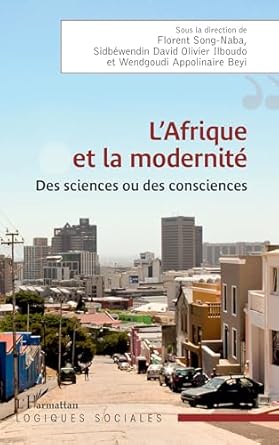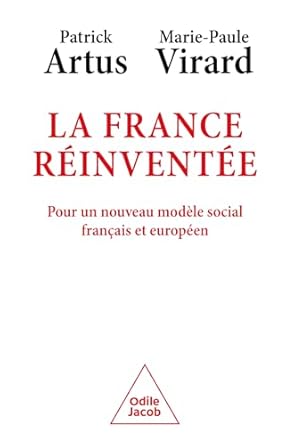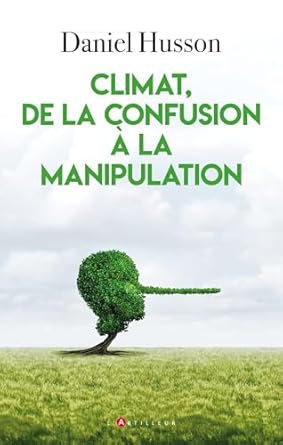Europe has been experiencing chaotic times for several years, particularly since the rise to power of an American president whose behavior is unpredictable and indecipherable within the traditional framework of global relations. What has become of Europe’s geopolitical influence in recent years? Russia’s outbreak of war against Ukraine has shaken the entire geopolitical landscape. How can Europe respond to the strategic shift of its historical ally, the United States? The author examines Europe’s geographical origins, its specific culture, and its economy. With a global GDP of 15%, the EU attracts international investment: the euro guarantees monetary stability, and the institution’s functioning is designed to be reassuring in order to ensure its security. However, its model, which promotes “unity in diversity,” does not currently allow it to play a leading role on the world stage. Long before the arrival of the American president in the red cap, some of his predecessors had taken very radical positions regarding Europe. One can cite President Washington, who advised Americans in 1796 not to get involved in European affairs. As for Monroe, he expressed a very strong idea: “America for the Americans.” These slogans and powerful ideas resonate with us constantly these days. It’s as if we are in the process of dismantling the UN to create a world divided into spheres of influence. To address this situation, President Macron mentioned, in 2017, a path toward “European strategic autonomy.” But where do we really stand? How can Europe be militarily independent when a large number of its member states are buying American F-35 fighter jets? The answer may lie in building a more integrated and powerful European military industry in the coming decades. In conclusion, the author outlines various hypotheses: his scenarios range from pessimism to a degree of optimism. We will also consider a possible scenario of a European resurgence. Analysts have often observed that Europe manages to overcome its divisions in the face of severe crises. Will it succeed in forging a consensus position to make its voice heard on the world stage and influence the course of history? Guillaume Lagane is a senior civil servant and lecturer at Sciences Po Paris. He is a specialist in defense issues. Renzo BORSATO.
ASSOUN Paul-Laurent, Psychanalyse de l’administration. Le symptome kafkaien, PUF, 2025, 256 pages
The book bears witness to the many talents of the author, who observes the conscious and unconscious dimensions of public administration. In the first part, the author presents himself as a historian and linguist. He traces the genealogy of the concept of “administration”, initiated by Bonnin in the eighteenth century and inspired by the spirit of Montesquieu’s laws and the practical spirit of Turgot, then enriched by the positivism of Auguste Comte. He recalls with Mirabeau that “administration is both a science and an art”. He redefines the “secular ethics” of the administration, oriented towards the “good of the service”, the author of the rights and duties of the citizen and the initiator of a “disembodied social bond”. He analyses administrative language, marked by a certain “verbal fetishism” and charged with “symbolic violence”. In a second part, the author engages in a psychoanalysis of the public administration, which he considers to be affected by the “Kafkaesque symptom”. He likens the rule to an “administrative superego” and the repetition compulsion of the official to a Freudian “id”. The employee is driven by a passion for regulation and impulses of control. The administrative body therefore has a disciplinary character, which causes the citizen, lost in the “bureaucratic labyrinth”, to feel “social anxiety” and “disturbing strangeness”. He shows that any administrative deregulation – including space-time – causes affects in administrators and the administered. He shows that the “lost file” is a missed act. Through a striking analysis, he transposes the clinical case of “the man with the rat”, analyzed by Freud, to the “administrative body”. In a third part, he becomes a literary critic, recalling the portraits – most often in charge – of administrative customs, which were drawn up by Courteline, Feydeau, Mirbeau, Melville, Gogol, but also Balzac, Flaubert and Camus. The French complain that France is “under-governed and over-administered”. They are calling for a simplification of procedures and a reduction of standards. They will understand by reading this book that it is simple to complicate and difficult to simplify, especially since the civil servant and the citizen are increasingly enslaved to their impulses and to Artificial Intelligence. Paul-Laurent Assoun (ENS Saint Cloud) is a psychoanalyst and university professor. He has written numerous books and articles in the various fields of social sciences. Jean-Jacques Pluchart
Antoine FOUCHER, Sortir du travail qui ne paie plus, Eds L’Aube, 2025, 138 pages.
The reader will not find in this booklet “the means to earn more by working less”, but he will know how to rebuild a society based on work, allowing both to live better and acquire wealth. The author notes that labor productivity has declined since the 1980s, due to the country’s de-industrialization and the weakening of skills due to educational downgrading. He recalls that France was downgraded from the 6th to the 27th place in the world ranking of GDP per capita. He notes that the purchasing power of the French is no longer progressing and that two-thirds of their wealth comes from inheritance. The French who do not work live better than those who do. Work only supports purchasing power through social assistance in all forms. The progressivity of taxes and contributions financing these aids also discourages employees from working overtime and employers from recruiting and/or increasing the wages of their employees. Workers retain, on average, only half of their gross earnings, while annuitants receive a third, retirees a sixth, and heirs less than a tenth. This results in different forms of resistance to work, which mobilize more protesters than other social conflicts, encourage sick leave, “silent resignations” and/or rejections of “bullshit jobs”. In 2025, the working population must also support twice as many retirees as in 1980. According to the author, this phenomenon is due to an unequal distribution of the value created by labor, which favors both financial and real estate capital. The French no longer believe in the “collective discourse” that orders them to get back to work. The author therefore strives to propose a new “social contract” aimed at bridging the gap between the living standards of workers, rentiers, retirees, and heirs. He proposes measures to enhance the value of work and the purchasing power of assets through a better remuneration, thanks to more professional training, a revival of innovation (especially through AI), a reindustrialization of the country associated with a limitation of imports of dumped products, a more flexible employment and a greater professional mobility. He advocates a “revenge of employees on customers”, by redistributing VAT rates in favor of basic necessities. He advises building a “new ideal of work”, based on the values of responsibility, respect, and empathy. The author engages in a rigorous and educational exercise of analyzing the French evil of professional attrition and puts forward coherent proposals to address it.Antoine Foucher was the Chief of staff of a labor Secretary. He currently heads the consulting firm Quintet. Jean-Jacques Pluchart
F. SONG-NABA, S. David ILBOUDO et W. A. BEYI (dir), L’Afrique et la modernité. Des sciences ou des consciences, L’Harmattan, 2025.
This collective book, written by African academics, raises the issue of the adaptation of African economies and societies to the technological, economic and social changes of the contemporary world. They question the place that the African continent could – or should – occupy in relation to Western countries, Europe, China and other countries of the global south. The authors strive to ease the tension that has existed for more than half a century between the legacy of post-colonial traditions and the post-modern imperatives based on innovation, individualism and freedoms. They define modernity as “a historical construct aimed at freeing the individual from social and cultural constraints” and they question the ability of African populations to adapt to technical and social progress, through coordinated collective actions and institutional and structural reforms. They consider it imperative to think of “active African modernity” not as an imitation of Western models, but as a plural construction, combining science and conscience, specific to the realities of the continent. To answer their questions, the authors apply a mainly ethnomethodological approach, combining theoretical analyses and practical observations. Several chapters deserve careful reading. Mbembe conceives of “post-traditional modernity” as characterised by a loosening of social practices and a reconfiguration of space-time, a differentiation of social spheres and a better institutional reflexivity, according to a perspective opened by the British sociologist Gidden. W-A. Beyi and S-D. O. Ilboudo reflect on the appropriation of AI technologies, which constitutes one of the main technological, economic and ethical challenges for African countries. B. Yampa and N.C. Tiemtoré show the massive adherence of populations to digital currencies for practical uses. S. J. Ouédraogo is interested in the difficulty of transmitting knowledge about new technologies. He strives to “rethink the epistemology of science in Africa, considering African cultures as strategies for well-being”. K. Wiebke notes an opposition between the ethnological and anthropological approaches adopted in “African Studies“, while W. Keim notes the paradoxical dimensions in social science between the North and the South of Africa. N. Kokouvi-Edem and A. Kouméalo question the practices of collective action in Africa and, in particular, the management of environmentally friendly development projects. The work therefore reflects the expectations of the African elite and youth faced with a promising but uncertain future. Jean-Jacques Pluchart
Clément CARBONNIER, Toujours moins. L’obsession du coût du travail ou l’impasse stratégique du capitalisme français, Eds La découverte, 2025, 180 pages.
Clément Carbonnier traces the history of French labour policy since the post-war period. He argues that there is no economic relationship between the cost of labour and productive employment. He shows the diversity and complexity of the mechanisms implemented to transfer the financing of social protection, limit its cost and ensure wage moderation. He analyses the side effects of these policies, such as the development of private protection, the introduction of social minima and the taxation of wage supplements. These measures have all been inefficient since the French employment rate – especially among young people and senior citizens – is one of the lowest in Europe. These policies have, however, been justified by the prevailing belief that public jobs are unproductive and that only private employment is efficient. The current imbalances are due to an uncontrolled decline in compulsory levies, taxes on companies and income from assets and reductions in contributions on salary supplements and contributions. The revision of these measures would generate a wave of discontent because it would only have long-term effects, which has dissuaded elected officials from reforming. The author is convinced that in the absence of political courage, the French state will be forced to comply with the rules imposed by international institutions and markets. The author therefore tries to show the inextricable nature of the social problem and the inevitability of international economic sanctions in the absence of reform. He reveals the extent of the impasses facing French society and the difficulty of emerging from them through neo-liberal or post-Keynesian policies. Measures to restore fiscal balance, social equality and business competitiveness, are a “squaring of the circle” because they involve structural reforms and a radical revision of the current social regulation mechanisms. The main interest of the book lies in its analysis of the scope and limitations of successive social policies and the reasoning held by neo-liberal and post-Keynesian policymakers to avoid a widening of deficits and an increase in social debt. Clément Carbonnier is a Professor of economics at the University of Paris I and the author of numerous books. Jean-Jacques Pluchart
From symbolic AI to connectionist AI
From symbolic AI to connectionist AI Jean – Jacques Pluchart The history of AI is marked by a tension between two approaches, alternately symbolic and connectionist, as observed by Cardon, Cointet and Mazières (2018). The researchers, following Lecun (2015), relaunched AI by processing massive data using so-called “deep neural” models (deep learning) and following a logic borrowed from cybernetics. This approach, described as “generative”, “inductive” or “connectionist”, has long been marginalised after the launch of symbolic AI in 1956 at Dartmouth by John McCarthy and Marvin Minsky, followed by the development of expert systems before the emergence of machine learning in the 1980s. Symbolic models were developed by a limited number of heavy league researchers, composed of a group of MIT (Minsky, Papert), Carnegie Mellon (Simon, Newell) and Stanford University (McCarthy), which mainly responded to public tenders and engaged in more or less playful experiments: chess or go games, dynamic simplified spaces, simulation of sets, semantic networks, truth functions, robotisation of behaviours, creation of new languages, etc. While symbolic AI applies a model to data following a hypothetical-deductive reasoning, connectionist AI follows an inductive logic by applying a learning method that makes it possible to make predictions by iteration of massive data. While symbolic AI applies a model (a theory or a heuristic) to structured data in order to verify a result at a given horizon, connectionist AI produces original content by “learning data” through appropriate questioning. While symbolic AI attempts to solve a predefined problem, connectionist AI induces meaningful representations from the interactions between social actors. This approach follows the logic of cybernetics initiated in 1948 by Norbert Wiener. The renaissance of connectionist AI is attributed in particular to the Parallel Distributed Processing research group led by Rumelhart et al. (1986). The work of the PDP explores the deep mechanisms of knowledge by exploiting the metaphor of neurons (a network of connections) and assuming that it is constructed by a binary activation mechanism. For more than 60 years, this controversy between researchers on AI has given rise to countless scientific works since, according to Cardon, Cointet and Mazières (2018), the “symbolic” corpus totalled 65,522 publications between 1956 and 2018, while the “connectionist” corpus gathered 106,278 publications. This vast debate is part of a process of scientific construction and deconstruction theorised in particular by Latour (1988). Références CARDON D, COINTET J-P. et Mazières A. (2018), « La revanche des neurones. L’invention des machines inductives et la controverse de l’intelligence artificielle », Réseaux 2018/5 (n° 211). LATOUR B. (1988) , Science in Action: How to Follow Scientists and Engineers Through Society , Harvard University Press. LECUN Y., BENGIO Y., HINTON G. (2015), « Deep learning », Nature, vol. 521, n° 7553. RUMELHART D. E., McCLELLAND J. L. (1986), « PDP Models and General Issues in Cognitive Science », in PDP RESEARCH GROUP (1986), Parallel Distributed Processing. Explorations in the Microstructure of Cognition, Cambridge MA, MIT Press. WIENER N. (2014), La cybernétique : Information et régulation dans le vivant et la machine, Seuil
Patrick Artus & Marie-Paul Virard, La France réinventée, Eds Odile Jacob, 170 pages.
In this latest opus, the authors, who are not at their first book together, look at some long-term proposals to reinvent a social model for France and Europe at the end of the history in the face of the ambitions of the United States and China. This first quarter of the 21st century has been marked by a spectacular drop in the European economy and even more so in the French economy. Since 2002, the US GDP has grown twice as fast as the European GDP. And this slide continues regardless of the elements of analysis used, productivity, R&D, investment, employment rate, trade balance, training, etc. France has even fallen behind on its own continent compared to its neighbors. The irresistible French de-industrialization has not been offset by the development of a significant technological sector, the debt and the trade deficit are abyssal, the quality of public services is deteriorating despite an ever-increasing budget deficit, and finally, the wealth per capita is 15% lower than that of Germany. Europe is at odds with Schumpeter and is paying a high price for its risk aversion. 54% of American R&D is devoted to new technologies compared to 15% in Europe, which prefers to continue investing in its old industry. Nine of the top ten European capitalizations are in traditional sectors, while nine out of ten of the American ones are related to technology and AI. The major asset of the American model lies in an ecosystem favorable to innovation and investment, which contrasts with the European model, hampered by a restrictive fiscal, legislative and regulatory frameworks. It could be summarized in a slogan: the taste for risk versus the “precautionary principle”. But this very “business friendly” American model hides weaknesses. Inequalities and impoverishment continue to grow, the exorbitant cost of care is a factor of indebtedness, and the financial situation of the Federal State, despite or because of the dollar, is catastrophic. While Donald Trump has promised the Americans to return to the golden age of the McKinley period, will a weakened and demoralized Europe be able to react? To do so, it will have to get out of the trap of weak growth, regain its dynamism, and defend its positions in the global struggle. The authors make concrete proposals at both the national and European levels. The urgent needs of French reforms are known, as well as the solutions. Choices will be imposed on us if we want to perpetuate our social model. But above all, we must find consent and active involvement in a context where exasperation, deadly dialectics, and mistrust of our leaders prevent all necessary reforms implementation and fuel the ineffectiveness of democratic models. Patrick Artus is an economic advisor to Ossiam and a member of the Cercle des économistes. Marie-Paule Virard is an economic journalist Ph Alezard
Daniel HUSSON, Climat, de la confusion à la manipulation, L’Artilleur, décembre 2024, 192 pages
“In life, there is nothing to fear, but everything to understand” (Marie Curie) The issue of climate concern, an emotional and anxiety-provoking matter, is nothing new! For these reasons, it requires greater clarity and the expression of arguments that are not based exclusively on linear extrapolations. Indeed, the IPCC report of March 2023, which predicts a global cataclysm, is considered by the author to be binary, political and overly alarmist. Its ambitions confront us with an extremely urgent problem in terms of decarbonisation. France claims to be carbon-virtuous, emitting 1% of global CO2. However, we can see that the actions of nations are not synchronised. Based on this observation, physicist Daniel HUSSON enters this confrontation determined to separate fact from fiction. In 13 well-argued and insightful chapters, he presents the importance of returning to reason in order to moderate the fears that have been generated, by looking at things from a different perspective to understand the cyclical changes that explain the structure of movements and causes. He points out that the planet’s climate system is an oceanic mechanism, which explains both the stability of the atmosphere over a long period and the erratic oscillations in the oceans, i.e. climate variability. Because: It is the ocean that dictates its law to the air. That’s how it is! It is established that climates have changed naturally and continuously since the beginning of time. Nature sets the laws, and humans are part of them. As long as the sun shines, the Earth’s axis remains tilted and the precession of the equinoxes continues, the Pole will remain a cold spot and the Equator a hot spot. This plea is like a blade ready to burst the bubbles that thrive here and there to make humans feel guilty at the expense of other justifications. Not giving in to sustained panic, playing things down, resorting to a plurality of viewpoints, putting things into perspective and setting the record straight: that is the stated aim of this informative book. . Daniel HUSSON is a physicist, teacher, researcher and trainer in physics since 1992. He teaches thermodynamics and Einstein’s theory of relativity at the University of Strasbourg. Author and co-author of more than seventy international scientific publications, he has also published Les Quarks, histoire d’une découverte (Quarks: The Story of a Discovery) – (Ellipses). Book review by Freddi Godet des Marais – Club Turgot 2025
FARAH Frédéric, No Frexit, Ce que les jeunes pensent de l’Europe. Eds Fayard, 154 pages.
The author approaches the European subject by probing the opinions of his high school and college students. The students surveyed were from Seine-Saint-Denis, the 5th arrondissement of Paris, and Tolbiac University. Are young people passionate about the European project? Do they feel more European than French? Do they know the European institutions? Bagnolet high school students are mostly from immigrant backgrounds and live in difficult family circumstances (some parents are unemployed). They note that Europe may be a market offering opportunities. Given its presence in the media world, the European Central Bank (ECB) is perceived as a monetary regulation institution. However, the other European institutions are less well known: the Parliament, the Commission, the Council. The Schengen area is highlighted for the convenience of traveling in Europe. It should be noted that all they have known is the euro,. Preparatory classes students (Paris 5th and 16th arrondissement) are of different sociological origins (more affluent social background), they adhere to the idea of a Europe that facilitates trade between its members. The approach of Tolbiac Univeristy students is a little different: they know better the various workings of the institution. Like their prep colleagues, they recognize the importance of the role played by the European Central Bank (ECB). They also note the importance of collective action during the financial crises and the COVID-19 pandemic. In conclusion, no group of students mentioned the idea of a “Frexit”. It should first be noted that students see the practical side of Europe because of the existence of the Erasmus program: it is a way to open up to other horizons and other cultures and makes them aware of their belonging to Europe. It was created in 1987. These young people were born after the creation of Europe and the euro: it would not occur to them to question it. One particular point brings negative remarks: the social aspect. Indeed, because of the commercial competition between members, employees earning minimum wage may find themselves unemployed. Some industries are relocated to lower wages countries . This book brings us closer to the concerns of these young people: we must listen to them and enlighten them on the path of Europe They will be the ones driving future European progress. Frédéric FARAH is a professor of economic and social sciences, a professor in preparatory classes and at the University of Paris 1 Panthéon Sorbonne. Renzo Borsato
AI and intellectual property law
The law firm Debouzy organised a series of conferences on the challenges of generative AI, aimed at corporate lawyers and managers. On 18 November 2025, the Turgot club was invited to the conference led by lawyers Desrousseaux and Pérot, specialists in patent and copyright law. The two lawyers argue that the legal problems differ according to the phases of the process of value creation by AI: the collection of data by AI agents, the learning by software (in the form of texts, images, voices or sounds, videos, codes) and the exploitation of applications thanks to user questions (prompts). The EU General Data Protection Regulation (GDPR), enacted in 2016, governs how the personal data of natural persons can be processed and transferred in Europe. It was reinforced in 2024 by certain provisions of the European AI Act. In the United States, data is protected in particular by the Uniting and Strengthening America by Providing Appropriate Tools Required to Intercept and Obstruct Terrorism Act (USA Patriot Act). In principle, the data is under opt-out and is not subject to opt-in (protected data that cannot be used). They can then in principle be used in the learning phase of the application, but in the operating phase, they cannot be reproduced in full in response to user prompts. They can only be partially transformed or reproduced. Digital markings of creations or inventions make it possible to better identify the data processed. At the stage of exploitation of the results of the application, it is difficult to measure their degree of creation or invention. The two lawyers note an increase in litigation for infringement as well as negotiations or transactions for the sharing of the value created by AI from patented inventions or protected intellectual creations. The trend would be towards negotiation rather than litigation because infringement is difficult to prove. Overall, lawyers believe that current patent, copyright and professional secrecy regulations are sufficient to protect inventors and creators. The increase in the number of cases decided and cases of use should be sufficient to establish jurisprudence and stabilise practices. Jean-Jacques Pluchart











